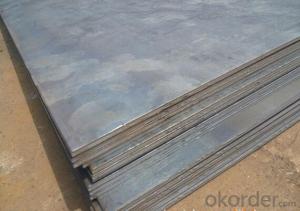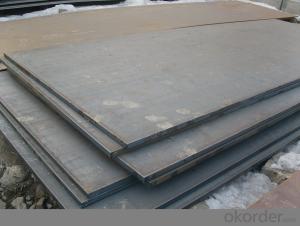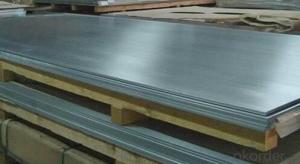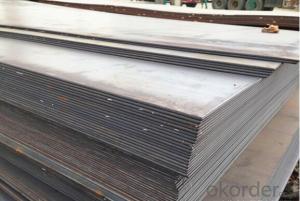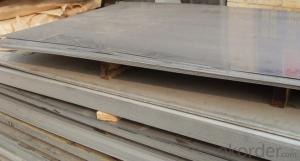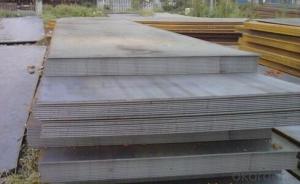SPHC SS400 HR Hot Rolled Steel Coil/Sheet
- Loading Port:
- Tianjin
- Payment Terms:
- TT OR LC
- Min Order Qty:
- 3 m.t.
- Supply Capability:
- 100000 m.t./month
OKorder Service Pledge
OKorder Financial Service
You Might Also Like
Item specifice
SPHC SS400 HR Hot Rolled Steel Coil/Sheet
Detailed Information of SPHC SS400 HR Hot Rolled Steel Coil/Sheet
| C | Si | P | S | yield Strength MAp | Tensile strength MAp | Elongation % | ||
| A36 | 0.24 | 0.4 | 0.045 | 0.03 | 250 | 400-520 | 26 | |
| C | Si | Mn | P | S | Cu | |||
| A283 | ≤0.27 | 0.15-0.4 | ≤0.9 | ≤0.035 | ≤0.04 | ≥0.2 | ||
| Thickness: | 6mm, 8mm, 12mm, 16mm, 20mm, 25mm, 30mm, 50mm, 80mm, 100mm, 150mm, 200mm | |||||||
| Width: | 1500mm, 1800mm, 2000mm, 2200mm, 2500mm | |||||||
| Length: | 6000mm, 8000m, can cut to width and length | |||||||
| Packing Details; | according to customer‘s require or export’s standard | |||||||
| Delivery time; | 7 days for stock sizes, 20-25 days for new production sizes | |||||||
| Port: | Tianjin China | |||||||
Related Products Overviews of SPHC SS400 HR Hot Rolled Steel Coil/Sheet
Product Name | Typical Grades | Diameter(mm) | Standard Adopted |
Carbon Steel | 20 (1020/S20C/C22) |
Ø16-Ø300 |
GB/SAE/ JIS/DIN |
40 (1040/S40C/C40) | |||
45 (1045/S45C/C45) | |||
Bearing Steel | GCr9 (51100/SUJ1) |
Ø12-Ø250 | |
GCr15 (52100/SUJ2/100Gr6) | |||
GCr9SiMn (A485-Gr.1/SUJ3) | |||
Cr-Mo Steel | 20Cr (5120/SCr420H/20Cr4) |
Ø12-Ø250 | |
40Cr (5140/SCr440/41Cr4) | |||
42CrMo(4140/SCM440/42CrMo4) | |||
Gear Steel | 20CrNiMo |
Ø16-Ø600 | |
20CrMn(5115/SMnC420/20MnCr5) | |||
20CrNiMo(8620/SNCM220/20CrMiMo2) |
Related Products Application of SPHC SS400 HR Hot Rolled Steel Coil/Sheet
Carbon Steel | l Mold bottom l Plastic mold l Construction machinery parts l Automobile parts l Security grills l Screens l Construction |
Bearing Steel | l Aerospace l Navigation l Nuclear energy l Chemical industry l Electronic information l Petrochemical l Instrument and meter l Transportation |
Cr-Mo Steel | l Mechanism & Fasteners gear l Stressed components for vehicles l Engines and machines l Parts of larger cross-section |
Gear Steel | l All kinds of gears l Statically and dynamically stressed component for vehicles l Engines and machine l Larger cross-section parts l Crankshafts |
Company Introduction of SPHC SS400 HR Hot Rolled Steel Coil/Sheet
CNBM International Corporation is the most import and export platform of CNBM group(China National Building Material Group Corporation) ,which is a state-owned enterprise, ranked in 270th of Fortune Global 500 in 2015.
With its advantages, CNBM International are mainly concentrate on Cement, Glass, Iron and Steel, Ceramics industries and devotes herself for supplying high quality series of refractories as well as technical consultancies and logistics solution.
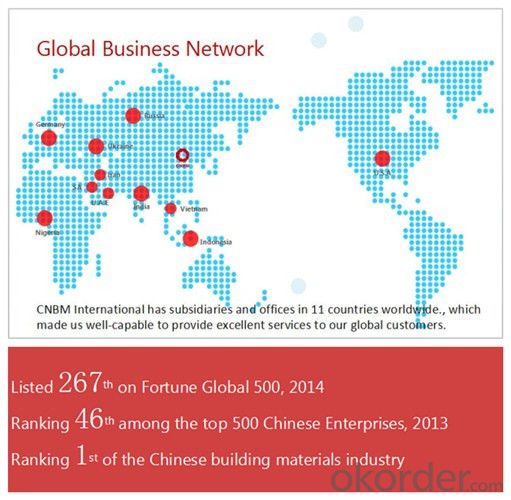
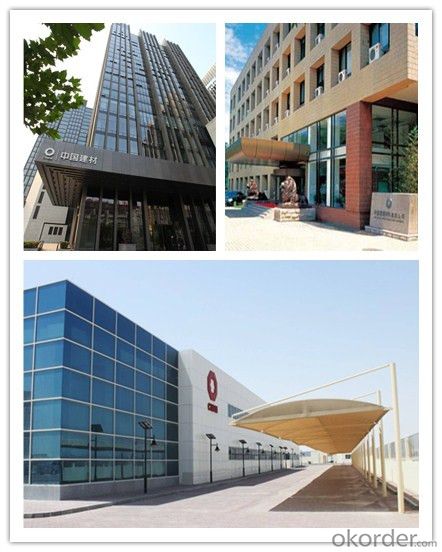
After-sale service | l CNBM provides the services and support you need for every step of our cooperation. We’re the business partners you can trust; you can relax and get on with doing business. l For any problem, please kindly contact us at any your convenient time, we’ll reply you in our first priority within 24 hours
|
Advantages
| l Industry experience over 20 years. l Shipment of goods -More than 70 countries worldwide. l The most convenient transport and prompt delivery. l Competitive price with best service. l High technical production line with top quality products. l High reputation based on best quality products.
|
Packaging & Delivery of SPHC SS400 HR Hot Rolled Steel Coil/Sheet
Packaging Detail | Sea worthy packing /as per customer's packing instruction |
Delivery Detail | 15 ~ 40 days after receiving the deposit |
Products Show
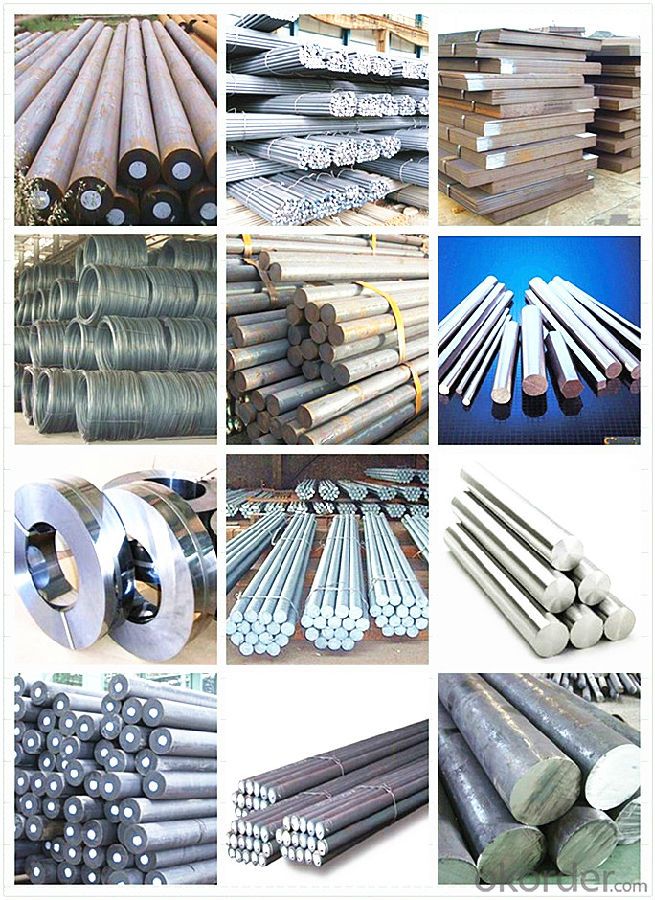
FAQ:
Are you a trading company or manufacturer? | Manufacturer |
What’s the MOQ? | 3 metric ton |
What’s your delivery time? | 15-35 days after downpayment received |
Do you Accept OEM service? | Yes |
what’s your delivery terms? | FOB/CFR/CIF |
What's the Payment Terms? | 30% as deposit,70% before shipment by T/T |
Western Union acceptable for small amount. | |
L/C acceptable for large amount. | |
Scrow ,Paybal,Alipay are also ok | |
Why choose us? | Chose happens because of quality, then price, We can give you both. Additionally, we can also offer professional products inquiry, products knowledge train (for agents), smooth goods delivery, excellent customer solution proposals. |
What's your available port of Shipment? | Main Port, China |
What’s your featured services? | Our service formula: good quality+ good price+ good service=customer's trust
|
Where are your Market? | Covering more than 160 countries in the world |
- Q:What are the main challenges in welding special steel?
- The main challenges in welding special steel typically include issues such as high heat input requirements, susceptibility to cracking, and the need for precise preheating and post-weld heat treatment. Additionally, the presence of alloying elements in special steel can make it more difficult to achieve the desired mechanical properties and require careful selection of filler materials.
- Q:Is special steel suitable for manufacturing precision components?
- Yes, special steel is highly suitable for manufacturing precision components. Special steel is a type of steel that is specifically engineered to possess exceptional properties, such as high strength, hardness, and resistance to wear, corrosion, and heat. These characteristics make it an ideal choice for manufacturing precision components that require tight tolerances, accuracy, and reliability. The inherent strength and hardness of special steel allow for the production of durable and long-lasting precision components. This is particularly important in industries where components are subjected to high stress and heavy loads, such as aerospace, automotive, and machinery manufacturing. Special steel's resistance to wear and corrosion ensures that the precision components can withstand harsh operating environments and maintain their functionality over time. Furthermore, special steel's excellent heat resistance makes it suitable for precision components that are exposed to elevated temperatures. This is especially relevant in industries like aerospace and power generation, where components need to withstand extreme heat without compromising their performance. Special steel also offers excellent machinability, which is crucial for manufacturing precision components with intricate designs and complex geometries. It can be easily shaped, cut, and formed into various shapes and sizes, allowing for the production of intricate and precise components. Overall, the unique properties of special steel, including high strength, hardness, resistance to wear, corrosion, and heat, as well as excellent machinability, make it highly suitable for manufacturing precision components. Its use ensures the production of high-quality components that meet the strict requirements of precision applications.
- Q:Can special steel be used in the medical industry?
- Yes, special steel can be used in the medical industry. Special steel, specifically stainless steel, is commonly used in the manufacturing of medical devices and equipment due to its corrosion resistance, biocompatibility, and sterilization capabilities. It is used for surgical instruments, implants, prosthetics, and various other medical applications where durability, hygiene, and non-reactivity are essential.
- Q:What are the properties of leaded steel?
- Leaded steel is a type of steel that contains a small amount of lead as an alloying element. The addition of lead enhances the machinability and chip formation properties of the steel. Leaded steel has improved cutting and drilling capabilities, making it easier to work with during machining operations. However, it also reduces the strength and hardness of the steel, which may limit its use in certain applications where high strength is required. Additionally, the presence of lead can pose health and environmental risks, so proper safety measures should be taken when handling and disposing of leaded steel.
- Q:How does special steel contribute to the aerospace aftermarket industry?
- The aerospace aftermarket industry heavily relies on special steel to provide critical components that are vital for the safe and efficient operation of aircraft. Special steel possesses high strength, durability, and temperature resistance, making it an ideal material for a wide range of aerospace applications. Engine components are primarily manufactured using special steel, particularly nickel-based superalloys. These alloys are used to produce turbine blades, compressor discs, and shafts, which are essential elements of jet engines. These components must be able to withstand extreme temperatures, pressures, and mechanical stresses, and special steel alloys offer the necessary properties to ensure reliable and long-lasting performance. Special steel is also utilized in the production of structural components in aircraft. Steel alloys with high strength-to-weight ratios, such as titanium alloys, are employed to construct critical parts like landing gear, wing spars, and fuselage frames. These components need to be lightweight yet strong enough to endure the forces and stresses experienced during flight. Special steel alloys provide the required mechanical properties to ensure the structural integrity and safety of the aircraft. In addition to engine and structural components, special steel is crucial for the production of fasteners, bearings, and other small but vital parts. These components play a significant role in holding various parts together and ensuring the proper functioning of systems. Special steel alloys with exceptional corrosion resistance, fatigue strength, and wear resistance are used to guarantee the reliability and longevity of these critical components. Furthermore, special steel plays a vital role in the maintenance, repair, and overhaul (MRO) activities of the aerospace aftermarket industry. Due to the rigorous demands placed on aircraft components, regular inspections, repairs, and replacements are necessary to maintain their airworthiness. Special steel materials are commonly used for MRO purposes because they are compatible with existing aircraft systems and can meet the stringent requirements of aerospace regulations. Overall, special steel is an indispensable material in the aerospace aftermarket industry. Its unique properties and characteristics enable the production of high-performance engine components, lightweight structural parts, and reliable small components. The use of special steel ensures the safety, efficiency, and longevity of aircraft, contributing to the overall success and growth of the aerospace aftermarket industry.
- Q:What are the different methods of surface ion nitriding for special steel?
- Surface ion nitriding of special steel can be achieved through various methods. These methods encompass: 1. Utilizing DC Plasma Nitriding: Employing direct current (DC) plasma to ionize nitrogen gas, a plasma atmosphere is created. By subjecting the special steel to the plasma chamber and applying high voltage, the ions are accelerated towards the steel's surface, resulting in nitriding. 2. Adopting RF Plasma Nitriding: Similar to DC plasma nitriding, RF (Radio Frequency) plasma nitriding employs a radio frequency power supply to generate plasma instead of direct current. This method allows for better control over the nitriding process and can accommodate more intricate geometries. 3. Employing Pulse Plasma Nitriding: By applying short pulses of high voltage to the steel surface, a plasma discharge is created. These pulses are repeated at regular intervals, enabling precise control over the nitriding process. Pulse plasma nitriding is commonly used for steels with sensitive properties that may be affected by prolonged exposure to high temperatures. 4. Combining Plasma Assisted Nitriding: This method combines plasma nitriding with other surface treatment techniques, such as physical vapor deposition (PVD) or chemical vapor deposition (CVD). Initially, the steel is coated with a thin layer of reactive material, followed by nitriding in a plasma atmosphere. This combination enhances the surface properties of the special steel, such as wear resistance or corrosion resistance. 5. Employing Glow Discharge Nitriding: This method involves placing the special steel in a chamber filled with a nitrogen-rich gas, such as ammonia. Applying high voltage creates a glow discharge, which ionizes the gas and generates nitrogen ions that diffuse into the steel's surface. Glow discharge nitriding is commonly employed for small parts or components with complex shapes. It is crucial to consider factors such as desired properties, steel geometry, and application-specific requirements when selecting the most suitable method for surface ion nitriding of special steel.
- Q:Can special steel be used for medical applications?
- Yes, special steel can be used for medical applications. Specialized types of stainless steel, such as AISI 316L or 316LVM, are commonly used in medical devices and implants due to their excellent corrosion resistance, biocompatibility, and strength. These steels are often used in surgical instruments, orthopedic implants, cardiovascular devices, and many other medical applications.
- Q:How does special steel contribute to the machinery manufacturing industry?
- The machinery manufacturing industry heavily relies on special steel, which is essential for producing high-quality and long-lasting machine components. This type of steel is specially designed to possess outstanding strength, toughness, and resistance to wear, corrosion, and high temperatures. Within the machinery manufacturing industry, special steel is specifically used in the production of crucial components like gears, shafts, bearings, and cutting tools. These components endure extreme mechanical forces, exposure to harsh environments, and repetitive motion, necessitating a material that can withstand these conditions while maintaining performance and safety. The exceptional properties of special steel empower machinery manufacturers to create equipment that is reliable, efficient, and durable. By utilizing this steel, manufacturers can enhance the overall performance and durability of their machinery, ensuring optimal functionality and minimizing the need for frequent repairs or replacements. Additionally, special steel allows for the design and production of more compact and lightweight machinery, resulting in improved energy efficiency, reduced manufacturing costs, and increased productivity. The high strength-to-weight ratio of special steel enables the production of smaller and lighter components without compromising durability or performance. Moreover, the corrosion and heat resistance properties of special steel make it suitable for industries with demanding operating conditions, such as aerospace, automotive, and energy. It ensures that machinery can withstand extreme temperatures, chemical exposure, and abrasive environments, ultimately improving safety and reliability. In conclusion, special steel significantly contributes to the machinery manufacturing industry by providing materials with exceptional strength, toughness, and resistance to wear, corrosion, and high temperatures. Its incorporation in critical components guarantees the production of reliable, efficient, and durable machinery, leading to improved performance, reduced costs, and increased productivity.
- Q:How does special steel perform in terms of weldability?
- Special steel generally performs well in terms of weldability. It has good ductility and can be easily welded using various welding methods such as arc welding, resistance welding, and laser welding. The composition and properties of special steel are specifically designed to ensure that it can be successfully welded without compromising its strength and integrity. However, the specific weldability of special steel may vary depending on its exact composition and specific grade. It is always recommended to consult the manufacturer's guidelines and follow proper welding procedures to achieve the best results when working with special steel.
- Q:How does special steel contribute to improving product resistance to environmental factors?
- Special steel contributes to improving product resistance to environmental factors in several ways. Firstly, special steel alloys often have enhanced corrosion resistance, protecting the product from damage caused by exposure to moisture, chemicals, and other corrosive substances present in the environment. Additionally, special steel can offer improved strength and durability, enabling the product to withstand harsh conditions such as extreme temperatures, high pressure, or mechanical stress. Furthermore, special steel can exhibit excellent fatigue resistance, ensuring that the product maintains its structural integrity even after prolonged exposure to cyclic loading or repetitive stress. Overall, the unique characteristics of special steel make it a valuable material for enhancing the resistance of products to various environmental factors, ultimately prolonging their lifespan and reducing maintenance costs.
1. Manufacturer Overview |
|
|---|---|
| Location | |
| Year Established | |
| Annual Output Value | |
| Main Markets | |
| Company Certifications | |
2. Manufacturer Certificates |
|
|---|---|
| a) Certification Name | |
| Range | |
| Reference | |
| Validity Period | |
3. Manufacturer Capability |
|
|---|---|
| a)Trade Capacity | |
| Nearest Port | |
| Export Percentage | |
| No.of Employees in Trade Department | |
| Language Spoken: | |
| b)Factory Information | |
| Factory Size: | |
| No. of Production Lines | |
| Contract Manufacturing | |
| Product Price Range | |
Send your message to us
SPHC SS400 HR Hot Rolled Steel Coil/Sheet
- Loading Port:
- Tianjin
- Payment Terms:
- TT OR LC
- Min Order Qty:
- 3 m.t.
- Supply Capability:
- 100000 m.t./month
OKorder Service Pledge
OKorder Financial Service
Similar products
New products
Hot products
Related keywords
